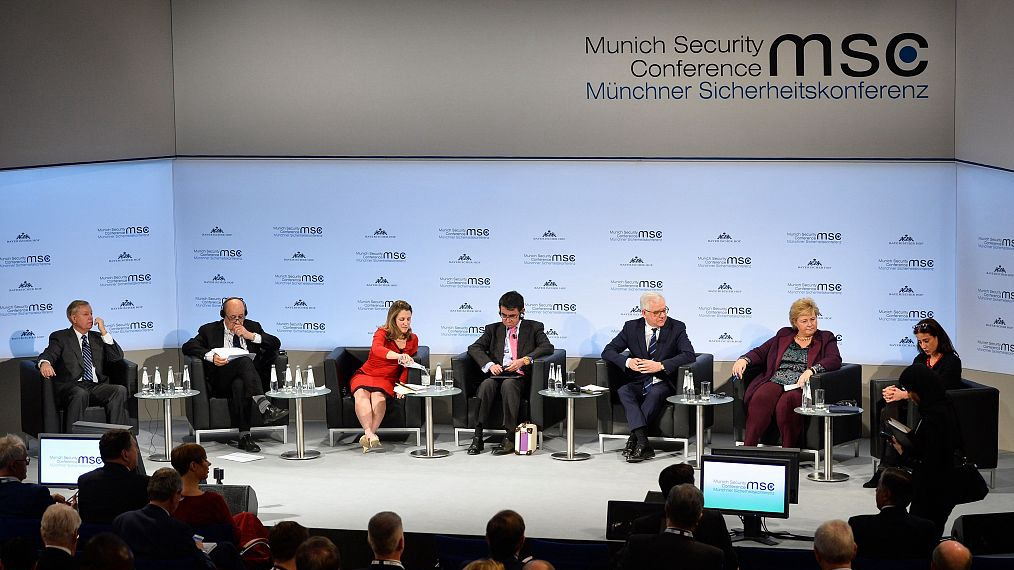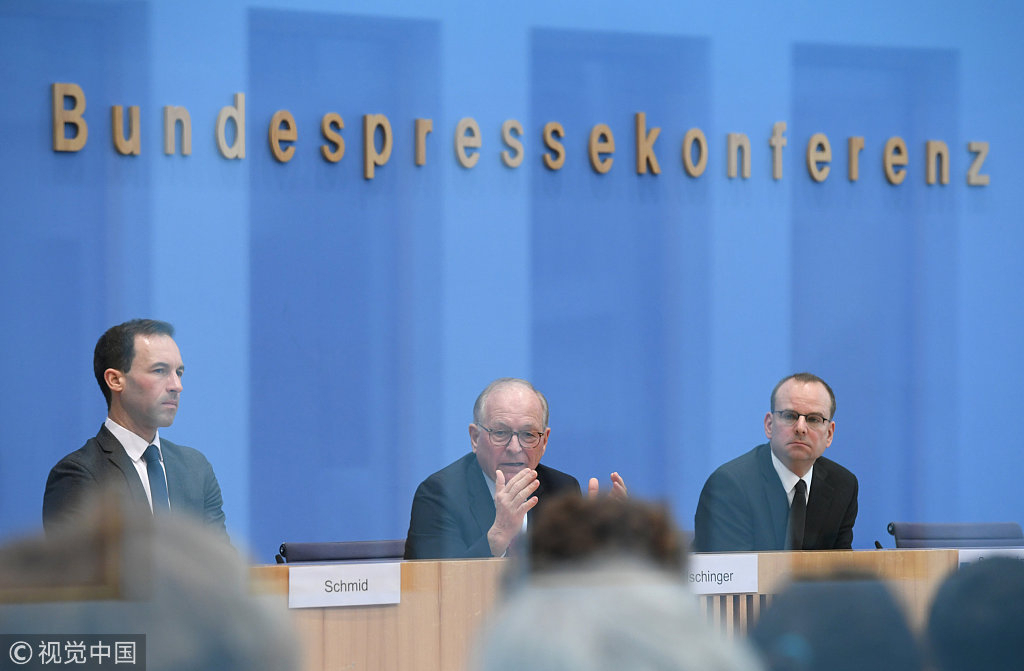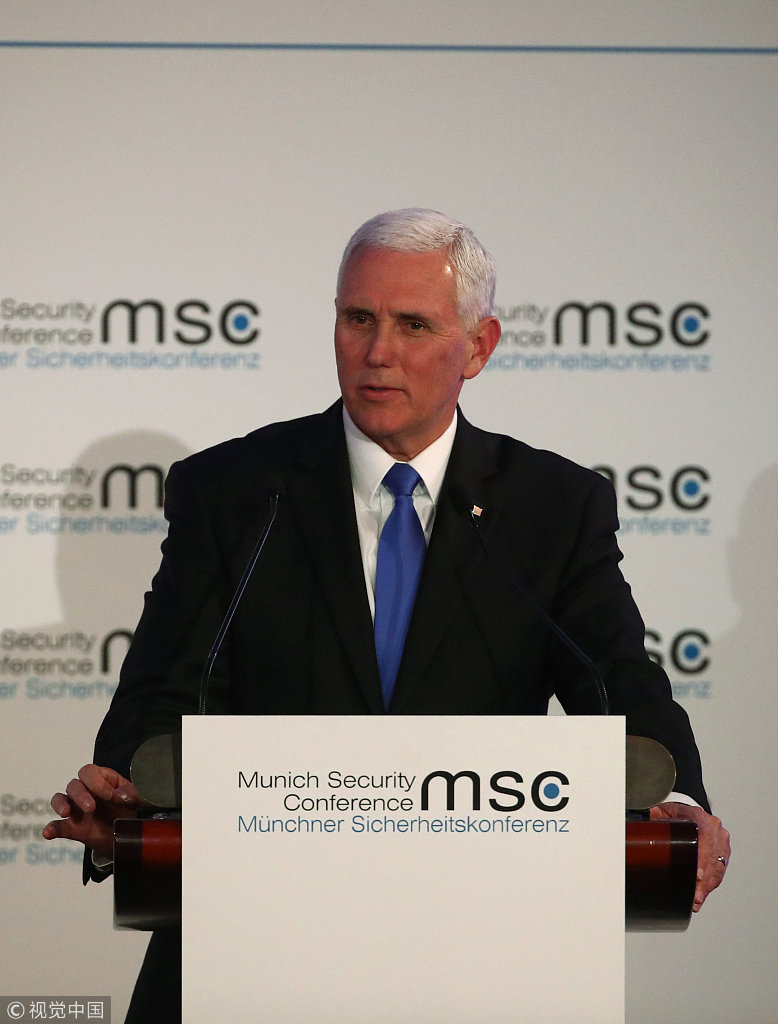Jiang Shixue
CGTN Opinion 16:07, 16-Feb-2019
https://news.cgtn.com/news/3d3d414f7a4d7a4e32457a6333566d54/index.html?from=timeline

Editor's note: Jiang Shixue is a professor at the Institute of Global Studies at Shanghai University. The article reflects the author's opinion, and not necessarily the views of CGTN.
As the world’s leading forum for debating international security policy, the Munich Security Conference (MSC), which takes place from February 15 to 17, aims to build trust and contribute to the peaceful resolution of conflicts through informal dialogue within the international security community.
German Chancellor Angela Merkel, along with quite a few government leaders will be attending the event including Yang Jiechi, a member of the Political Bureau of the Communist Party of China (CPC) Central Committee.
High on the agenda of the 2019 MSC are themes such as defense cooperation, arms control, trade and international security. As a rising power, China is ready to make its contributions to dealing with these important issues.

Munich Security Conference (MSC) chairman Wolfgang Ischinger presents the Munich Security Report for 2019 in Berlin, Germany, February 11, 2019. /VCG Photo.
According to the newly published Munich Security Report 2019 titled "The Great Puzzle: Who Will Pick up the Pieces?", if we look at the current state of international affairs, it is difficult to escape the feeling that the world is witnessing not only a series of crises but also falling apart of the liberal international order.
In the textbooks of international relations, it is commonly understood that the so-called liberal international order, established in the aftermath of World War II, are organized around several guiding principles, such as open markets, multilateral institutions, liberal democracy and leadership by the United States and its allies, often associated with Pax-Americana.
Apparently, this kind of order can hardly fit into the context of a globalized and multilateral world.
Therefore, at MSC, China needs to say that it endeavors to protect a just world order that reflects the interests of every nation, not one based on unilateralism and power politics.
On many occasions, China has put forward the diplomatic concept of building a community with a shared future for mankind. It is unlikely to replace the liberal international order in the near term, but it can open a new window of opportunity in the process of managing international relations.
The 2019 report also notes that a new era of great power competition is unfolding between the United States, China and Russia. "While no one can tell what the future order will look like, it is becoming obvious that new management tools are needed to prevent a situation in which not much may be left to pick up," the reports asserts.
It takes two to tango. China has repeatedly called for the establishment of a new type of relations among the major powers based on the principles of no confrontation and win-win cooperation. But this good-will call has fallen upon the deaf ear of the United States.

U.S. Vice President Mike Pence speaks during the Inaugural John McCain Award Ceremony at the annual Munich Security Conference in Munich, Germany, February 15, 2019. /VCG Photo
Apparently, since Trump assumes power, the United States has redoubled its efforts to contain the peaceful rise of China in such areas as trade technology and Taiwan issue.
Therefore, at the MSC 2019, it is necessary for China to tell the United States and the world as a whole that a new type of relations among the major powers will not only contribute to world peace and development but also serve the interests of both the United States and China.
With the rapid rise of its national strength, China is faced with all kinds of misjudgment, misunderstanding, and misperception. Hence, it is imperative for China to explain to the world why and how China will always pursue a path of peaceful development. Many people around the world do not know that the gene of the Chinese culture is harmony, which is inherited from the Chinese culture.
China's Belt and Road Initiative (BRI) has attracted both enthusiasm and skepticism, while more than half of the countries in the world have signed a memorandum of understanding for the cooperation with China within the framework of the BRI.
U.S. Vice President Pence said at the 2018 APEC CEO Summit: "We do not offer a constricting belt or a one-way road." So, at the MSC platform, China also needs to defuse such kind of negative comments by offering evidence of the results over the past five years.
Moreover, China has realized the importance of strengthening its soft power. The MSC offers an opportunity for China to make itself understood as the gathering has attracted wide attention from around the world.
(If you want to contribute and have specific expertise, please contact us at opinions@cgtn.com)
